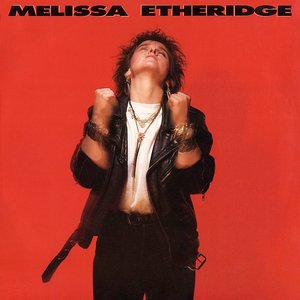Published on Dec 6, 1999
Long long ago, when MTV actually still played videos, I remember
being utterly transfixed by the sight of a bitter-mouthed,
expressive woman with reddish hair singing a simple ballad whose
words twisted like cold, acid knives. Not at all the usual stuff of
Empty Vee, and I assumed she’d sink without a trace; I was
pleasantly surprised to see her hang on and become one of the most
influential artists of the nineties. The song on that video long
ago was “Similar Features,” from Melissa Etheridge’s self-titled
debut album.
I’ve been a fan of Etheridge since then. Sometimes, I think
she’s skirted a touch too close to commercial, and sometimes I
think she’s been utterly brilliant. But it all started with that
video, and this CD, and in many ways everything she has been up to
now is reflected in this first disc, and it is, simply, a
powerhouse.
Etheridge’s sound on
Melissa Etheridge is still young, a touch raw, a touch
ragged-edged – in many ways she was still finding her voice here,
polishing things up for the later genius of CDs like
Brave And Crazy or
Yes I Am. But because of the social commentary that her
music and presence evokes wherever it goes, it’s easy to forget
that Rock’s First Public Lesbian is also one
hell of a musician. In some ways, it’s easiest to see that
on
Melissa Etheridge; without the expectations of VH-1 or the
icon status of her sexuality, she just performs. And perform she
does.
The songs you know are a convincing argument that Etheridge is
one of the best rock performers of the last ten years. The jewel of
the album is the hard-driving, acoustic “Like The Way I Do,” an
angry challenge of a song, powerful and defiant. “Similar Features”
is bitter and soft, biting and mourning at the same time; “Chrome
Plated Heart” is almost country in some moments, a tongue-in-cheek
statement of self; and “Bring Me Some Water” is another
hard-rocking beg for relief from an indecisive lover. All these
songs got some radio play, and rightfully so; in the
keyboard-drenched dregs of the late eighties, they were a breath of
fresh air.
That’s only half the story, though. There’s also Etheridge’s
more introspective side, featured on songs like “Precious Pain”,
“The Late September Dogs,”, or the acoustic drums and voice of
“Occasionally.” “Watching You”‘s guitar is elegant and crystalline,
and the building emotion is almost perfect. The CD’s close with the
funky, upbeat “I Want You” is a fitting end to a wonderful
work.
In my humble opinion (worth exactly what you think it is),
Etheridge will be remembered as one of the great rock artists of
the nineties and beyond. It all began here, and it’s marvelous.
Check it out.
